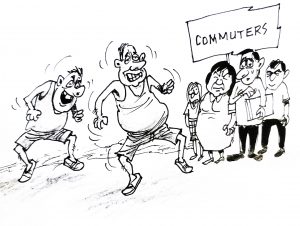Fun runs have become increasingly popular in recent years, attracting participants of all ages and fitness levels. But their impact on traffic and commuter mobility should not be overlooked, making sure that measures are taken to ensure it does not paralyze traffic and hinder the mobility of commuters.
Fun run organizers should carefully plan the routes to minimize disruptions to traffic flow. By utilizing less busy roads or scheduling the run during off-peak hours, the impact on commuter mobility can be significantly reduced. Additionally, collaboration with local authorities and implementing traffic control measures such as detour signs, temporary road closures, or appointing traffic marshals can further alleviate the congestion caused by such events. This proactive approach would demonstrate consideration for both the participants of the fun run and the general public affected by the traffic disruptions.
Promoting alternative modes of transportation can also mitigate the impact on traffic. Encouraging participants to carpool or use public transportation not only reduces the number of vehicles on the road but also improves air quality and reduces greenhouse gas emissions. Offering incentives such as discounted public transport tickets, organizing shuttle services from central locations, or providing secure bicycle parking facilities can motivate individuals to adopt these alternative modes. Furthermore, strategically locating the starting and finishing points away from major traffic routes can avoid significant disruptions to the daily commute.
Lastly, leveraging technology and communication systems can enhance traffic management during fun runs. Utilizing real-time traffic updates and sending notifications to commuters about route changes, delays, or alternative travel options can help them make informed decisions. Mobile applications that provide detailed information about the event’s impact on traffic and suggest the best alternative routes can significantly reduce frustration and inconvenience. By utilizing these technological advancements, the effect of fun runs on traffic congestion and commuter mobility can be effectively minimized.
While fun runs provide numerous fitness and community benefits, it is important to ensure that they do not paralyze traffic and impede commuter mobility. By striking a balance between promoting physical activity and considering the needs of the larger community, fun runs can continue to be enjoyable events without hindering the mobility of commuters.




